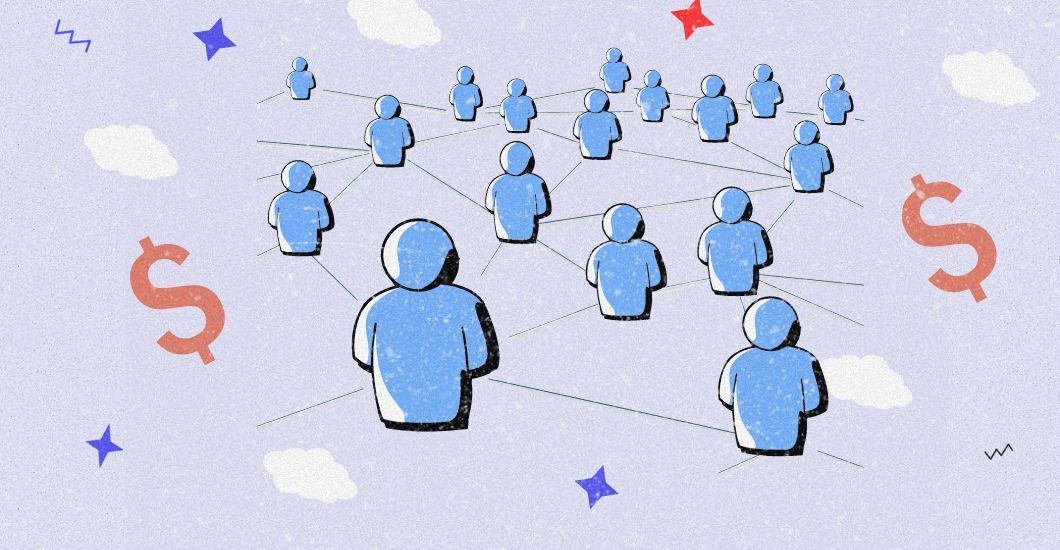What is the Gig Economy and How Does it Work?
The traditional labour force was already undergoing a huge transition as a result of the rise of the Internet. Technologies such as email and video calls have increased the pace at which people can communicate and collaborate while facilitating greater mobility.
People no longer have to rely solely on the traditional 9-to-5 work for financial support; instead, they can choose from a broader range of possibilities. Nowadays individuals are free to pursue shorter-term work opportunities based on their interests and needs, allowing for greater flexibility and innovation in the workplace, thanks to the gig economy.
So, what is the gig economy, and what are some of the most alluring aspects of working in it? Let’s take a look.
Are you curious about why is remote work the future? Check out our blog post about Remote Work is the future of work!

What is the gig economy?
The term “gig economy” refers to a free, global marketplace where businesses, contractors, or freelancers establish temporary, project-based, and skill-based professional connections. Gig workers may operate in many different industries, from delivering food or personal grocery shopping to editing documents, providing support services, or even performing on stage.
Who is part of the gig economy?
The workforce of gig individuals consists of people from a wide range of backgrounds. While some workers seek additional money outside their traditional professions, others rely only on contract work and projects to support themselves.
There are two primary categories of gig workers:
- Freelancers: A freelancer is a self-employed worker and has the freedom to take jobs from anyone, including taking on several at once. Freelancers are professionals who earn their living by providing unique services to businesses needing expertise in writing, design, programming, consulting, or marketing.
- Contractors: Contractors are hired short-term, typically for three months to two years and a limited number of tasks. Once a company has hired an independent contractor, it cannot accept employment from other gig economy companies.
Common gig economy jobs and industries
The rise of the “gig economy” and other forms of alternative employment has created a wealth of possibilities in today’s dynamic labour market. The gig economy jobs offer complete opportunities, from those seeking independent contracting work to those seeking professional freelancing positions.
So, whether you’re thinking about jumping into the gig economy or are just curious about its various possibilities, this section will shed light on the industries and occupations where gig work is flourishing.
Virtual assistant
Hiring a virtual assistant can be a huge time saver for entrepreneurs running online or small businesses. The duties of a virtual assistant include processing email, making travel arrangements, setting up meetings, and managing data, among other things.
In addition, with a reliable internet connection, these tasks may be completed anywhere in the world. Moreover, if you are highly competent and well-organised, you may be able to manage multiple clients as well.
Graphic designer
Depending on the background and interests, graphic designers may offer social media template files to bloggers and small company owners, work as a freelance illustrator or website designer, or even serve as an expert in branding.
A graphic designer’s job is to make visually appealing digital products for businesses, such as brochures, advertising, and publications. In addition, graphic designers can take on short-term projects and freelance work, such as for product launches or promoting a new business in the area.
Content writer
Content writers are required for various tasks, including creating blog posts, product descriptions, website content, producing reports, and even assisting others with job applications.
As a freelance content writer, having excellent writing skills, adaptability, and the ability to meet deadlines is crucial. In order to attract new clients and keep the ones you already have happy, it’s essential to build a solid portfolio and keep your existing ones happy.

What impacts the gig economy?
The gig economy, a rapidly growing sector of the modern workforce, is influenced by various factors that shape its dynamics. The expansion and steadiness of the gig economy, the diversity of gig jobs, and the quality of life for gig workers are all susceptible to these factors.
In addition, the gig economy is impacted by several vital elements, including technological developments, economic conditions, labour market trends, regulation and law, worker organising and advocacy, and consumer behaviour.
Moreover, an awareness of these factors is essential to better manage the potential and challenges of the gig economy and promote fair and sustainable gig labour practices.
Importance of the gig economy
The development of the gig economy has not only upended the idea of a 9-to-5 job but also altered our perceptions of more conventional forms of employment.
As a result of its independence and adaptability, the gig economy has attracted millions of employees in recent years.
However, understanding the advantages and disadvantages of the gig economy is one of the essential parts for workers and businesses to make informed decisions about their participation in this evolving market.
Therefore, the following are some reasons why the gig economy is important:
- Provides a degree of adaptability: Workers in the “gig economy” can choose their working conditions from the hours they put into the location. Employees are often given tasks with a deadline but are allowed latitude in how and when they do them.
- Offers many different employment opportunities: In the gig economy, one’s work duties may vary widely. Each project or engagement may have unique characteristics that make the work more fascinating than doing the same thing repeatedly.
- Job creation and economic growth: The gig economy encourages innovation and supports scalability by giving companies flexible access to various personnel. In the gig economy, business owners and startups can quickly and affordably hire specialists as needed to help them grow their companies.
- Earnings potential: Depending on your field and level of expertise, freelance work may pay better than regular employment. In addition, workers will be able to build a system that generates income from many channels, ensuring financial security even when losing a single client or project.
- Fosters innovation and adaptation: The gig economy modifies itself in response to changing technological landscapes and consumer preferences. It’s a great way to get people and businesses in the habit of trying new things, being flexible, and thinking outside the box.

Wrapping things up
In the coming years, gig labour is expected to increase in popularity. This is a generational shift compared to the standard 9-to-5 workday that has been the norm for the past century. In addition, millions can pursue their ambitions of becoming their own boss by using one of the many online resources that might introduce you to a lucrative business venture.
